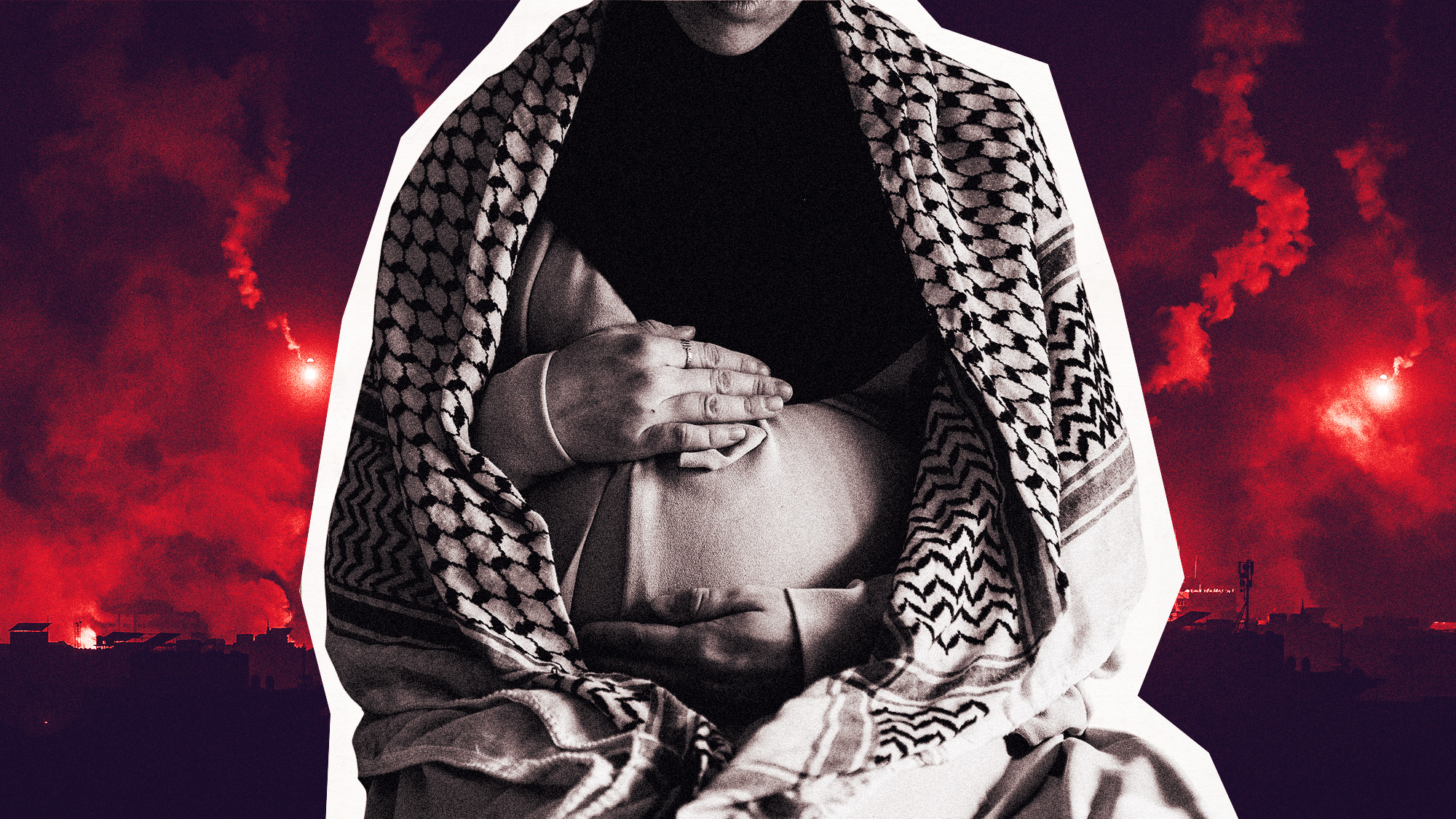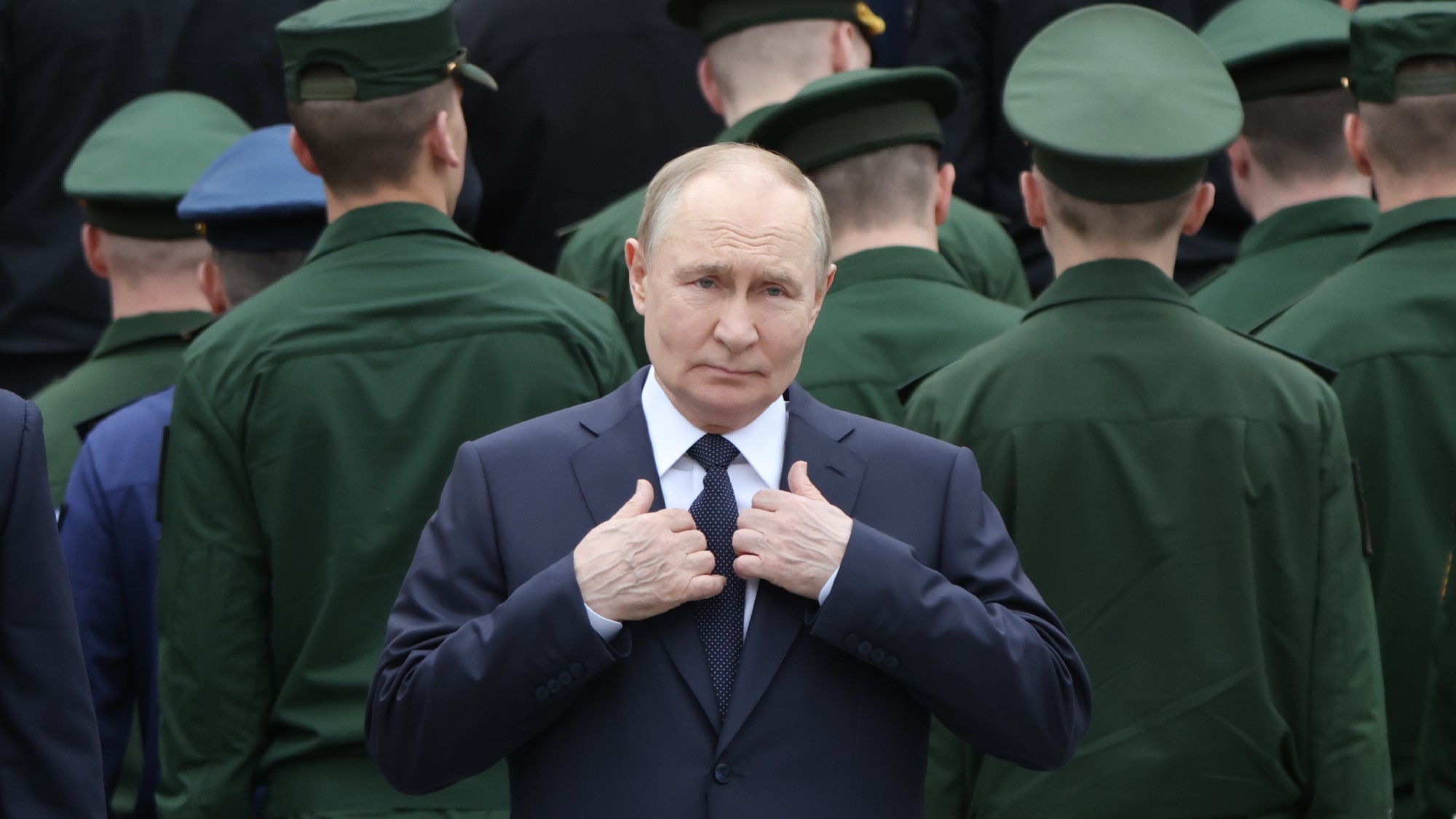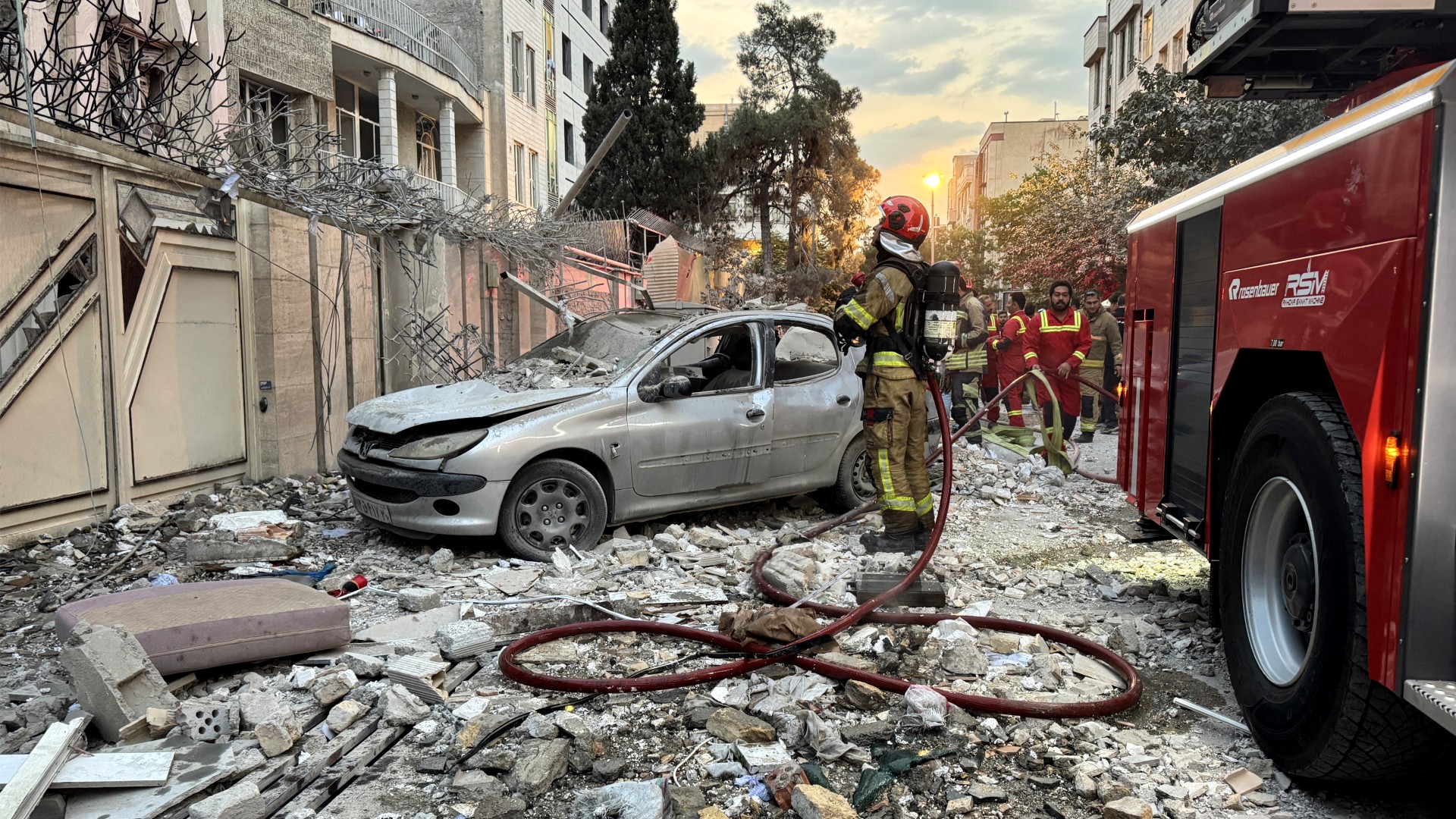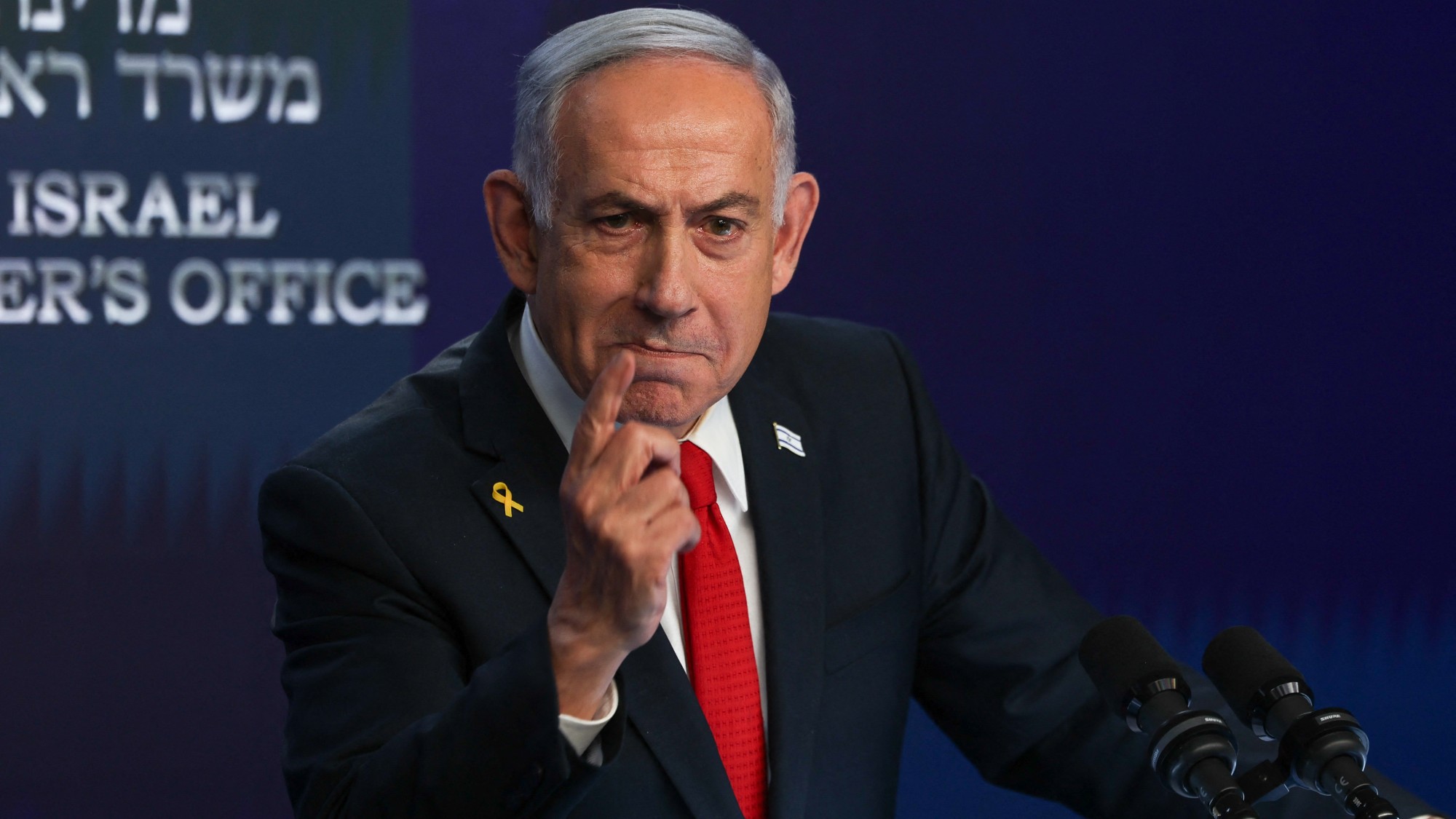How pregnant women are 'greatest victims' of Israel-Hamas conflict
Nearly 20,000 babies have been born in Gaza since war broke out, but miscarriage and maternal death rates are rising

A free daily email with the biggest news stories of the day – and the best features from TheWeek.com
You are now subscribed
Your newsletter sign-up was successful
Thoughts and headlines are understandably concerned with the shocking death toll in Gaza – but new lives are also under threat.
Last week, the Hamas-run Gaza health ministry said that the number killed in the three months of Israeli bombardment had exceeded 25,000: a casualty rate "without precedent in the decades-old Israeli-Palestinian conflict", said The Associated Press.
About 7,000 more are "buried under rubble presumed dead", said The Guardian.
The Week
Escape your echo chamber. Get the facts behind the news, plus analysis from multiple perspectives.

Sign up for The Week's Free Newsletters
From our morning news briefing to a weekly Good News Newsletter, get the best of The Week delivered directly to your inbox.
From our morning news briefing to a weekly Good News Newsletter, get the best of The Week delivered directly to your inbox.
'Disproportionately bearing the burden'
Women, children and newborns are "disproportionately bearing the burden" of this war, said the World Health Organization (WHO): as of November, they made up about two-thirds of all casualties.
But when the war broke out after Hamas's massacre on 7 October, about 52,000 women in Gaza were already pregnant. They are among the catastrophe's "greatest victims", said The Washington Post. An estimated 183 of these women are giving birth every day, in unimaginably dire conditions.
"As airstrikes push 1.9 million people into an ever-smaller corner of the besieged enclave, disease is spreading," the paper reported. "Famine is looming and levels of anaemia are so high that the risk of postpartum haemorrhage has soared and breastfeeding is often impossible."
With more than half of Gaza's hospitals destroyed and the remaining facilities only partially functioning, women are "forced to deliver babies in overcrowded and unclean shelters without medical support", said the charity Care International. Some are giving birth via C-section without anaesthetic – and face a huge risk of infection due to the lack of clean medical tools.
A free daily email with the biggest news stories of the day – and the best features from TheWeek.com
'Psychological toll of hostilities'
"My experience during childbirth was a nightmare in every sense of the word, or something like a horror film," Wajiha al-Abyad told The New York Times.
During the first 100 days of the war, nearly 20,000 babies were born under these conditions, Unicef reported on 19 January. "That's a baby born into this horrendous war every 10 minutes," a spokesperson told a briefing in Geneva.
The "psychological toll" of hostilities is also having "deadly" consequences, said the WHO, causing a rise in stress-induced miscarriages, premature births and stillbirths. Healthcare workers have reported a 300% increase in miscarriages in Gaza, Nour Beydoun, Care's regional adviser on protection and gender, told Jezebel.
But beyond pregnancy and maternal deaths, women's health is compromised during war. In Gaza, a lack of menstrual hygiene products is causing an increase in infections in women and girls, Beydoun told HuffPost, as they are using unsanitary fabric or clothing while on their periods.
Women also face the growing threat of what the UN has called "war's oldest, most silenced and least condemned crime": rape. The breakdown of law and order, rising violence and displacement of people make women increasingly vulnerable to rape and sexual assault. Many will also become pregnant as a result.
Harriet Marsden is a senior staff writer and podcast panellist for The Week, covering world news and writing the weekly Global Digest newsletter. Before joining the site in 2023, she was a freelance journalist for seven years, working for The Guardian, The Times and The Independent among others, and regularly appearing on radio shows. In 2021, she was awarded the “journalist-at-large” fellowship by the Local Trust charity, and spent a year travelling independently to some of England’s most deprived areas to write about community activism. She has a master’s in international journalism from City University, and has also worked in Bolivia, Colombia and Spain.
-
 Democrats push for ICE accountability
Democrats push for ICE accountabilityFeature U.S. citizens shot and violently detained by immigration agents testify at Capitol Hill hearing
-
 The price of sporting glory
The price of sporting gloryFeature The Milan-Cortina Winter Olympics kicked off this week. Will Italy regret playing host?
-
 Fulton County: A dress rehearsal for election theft?
Fulton County: A dress rehearsal for election theft?Feature Director of National Intelligence Tulsi Gabbard is Trump's de facto ‘voter fraud’ czar
-
 Taiwan eyes Iron Dome-like defence against China
Taiwan eyes Iron Dome-like defence against ChinaUnder the Radar President announces historic increase in defence spending as Chinese aggression towards autonomous island escalates
-
 The mission to demine Ukraine
The mission to demine UkraineThe Explainer An estimated quarter of the nation – an area the size of England – is contaminated with landmines and unexploded shells from the war
-
 How long can Nato keep Donald Trump happy?
How long can Nato keep Donald Trump happy?Today's Big Question Military alliance pulls out all the stops to woo US president on his peacemaker victory lap
-
 How far would Russia go for Iran?
How far would Russia go for Iran?Today's Big Question US air strikes represent an 'embarrassment, provocation and opportunity' all rolled into one for Vladimir Putin
-
 How the Israel-Iran conflict broke out
How the Israel-Iran conflict broke outThe Explainer Israel's strike on Iran's nuclear and missile programmes was years in the planning
-
 Will the UK get involved in the Israel-Iran conflict?
Will the UK get involved in the Israel-Iran conflict?Today's Big Question Keir Starmer is 'walking a tightrope' in helping Israel limit Tehran's nuclear capabilities without being seen to do so
-
 What happens if Israel attacks Iran?
What happens if Israel attacks Iran?TODAY'S BIG QUESTION Israel is 'ready to strike' and Tehran has plans for counterattacks against the US as nuclear talks appear deadlocked
-
 How will the MoD's new cyber command unit work?
How will the MoD's new cyber command unit work?Today's Big Question Defence secretary outlines plans to combat 'intensifying' threat of cyberattacks from hostile states such as Russia